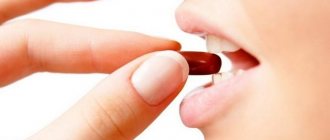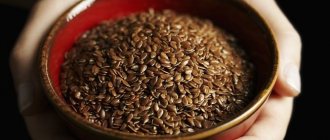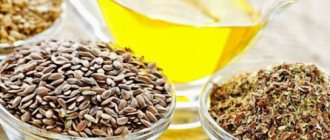Effect on digestion
As part of the enormous demand, special importance is attached to research on the quality of coffee beans and its effect on the human body from the point of view of a specialty drink. The chemical composition depends on the type of coffee bean and its ripening period. The most common varieties include:
- Arabica (it has been proven that this variety produces a higher quality drink and has a soft, slightly sour taste);
- robusta (contains approximately twice as many alkaloids, has a strong, slightly astringent taste).
The main functional properties are due to the content of chlorogenic acids, which have antioxidant activity. Their concentration directly depends on the time of heat treatment to which the grains were subjected before the actual preparation of the drink. The degree of roasting is taken into account (preferably light or medium). And also the time of exposure of ground grains in hot water at a constant temperature.
Coffeestol and kahweol are present in the chemical composition of the drink. These substances fight carcinogens and have hepatoprotective properties. A special role today is given to the study of soluble dietary fibers (galactomannan and type II arabinogalactan) contained in coffee beans. They are not digested during digestion, but once they enter the large intestine, they act as a substrate for the proliferation of beneficial intestinal microflora. This affects metabolic processes, reduces cholesterol levels, and has a beneficial effect on glucose and insulin response. The microbiota that inhabits the intestines of a person who drinks good natural coffee ferments ingested polysaccharides, improves pH levels, stimulates the growth of beneficial lactic acid bacteria and prevents the proliferation of pathogenic microorganisms.
With all the described beneficial properties, the question remains open: is it possible to drink coffee for constipation?
Coffee as a laxative
Due to the content of chlorogenic acid in the drink, the drink, when it enters the stomach, enhances the production of gastric juice and activates digestive processes. Under the influence of acid, the hormones gastrin and cholecystokinin are produced, stimulating intestinal motility.
Sometimes, in people who have the habit of drinking a cup of coffee every day after waking up, the body independently builds its biorhythms so that even after stopping drinking the drink at the set time, the urge to defecate may occur for several days in the morning.
Decaffeinated coffee is most suitable for use as a laxative drink. The fact is that caffeine partially dehydrates the body. Without caffeine, food that passes from the stomach to the intestines retains moisture, and the laxative effect becomes more pronounced.
Coffee as a fixative
Despite all the beneficial properties, some people make a connection between coffee and constipation. Can coffee cause constipation? Drinking a high-caffeine drink in large doses can dehydrate the body and cause hardening of the stool. Their progress through the intestines will slow down. This is due to its diuretic effect. However, as the results of studying the influence of coffee show, constipation is more likely to be caused by other foods consumed and a sedentary lifestyle.
For lovers of the product who are faced with digestive upset in the form of diarrhea, but are not ready to give up their favorite taste, drinks that are similar in taste to traditional coffee can help:
They are able to reduce the load on the pancreas, reduce pain, combat increased gas formation, and restore the balance of microelements. It should be noted that this is true for minor digestive disorders.
If there is fever, vomiting or other serious health problems, you should consult a doctor.
Effect of coffee on the digestive system
To understand whether coffee is beneficial for recurrent constipation, you need to know how this product affects the intestines and other organs of the gastrointestinal tract. It has been proven that caffeine contained in natural beans has a laxative effect, but this does not mean that delicious coffee can be an effective remedy for constipation.
And there is a completely logical explanation for this. When entering the digestive system, a coffee drink leads to:
- To enhance intestinal motility. And this is good for constipation, but at the same time there is an accelerated passage of food through all digestive organs and, as a result, some of the beneficial elements do not have time to be absorbed.
- To relax the bile ducts. Better bile secretion also promotes good digestion of food, that is, caffeine can stimulate metabolism.
- To increased production of gastric juice. Hydrochloric acid also helps break down the food bolus, but in some diseases it can lead to their aggravation. In this case we are talking about ulcerative pathologies of the gastrointestinal tract, erosive gastritis.
- To toning the whole body. Aromatic coffee often helps to calm down and this effect can be used in cases where constipation occurs under the influence of stressful situations. Drinking the drink will relax the colon and make defecation easier.
That is, theoretically, coffee can become a mild laxative for constipation, but this does not exclude the risk of developing other diseases of the stomach and intestines.
Drinking a strong invigorating drink with sugar is especially dangerous for constipation; it causes intestinal spasms and bowel movements become even more difficult.
Difficulty in defecation with a large amount of coffee also develops due to the fact that the seeds contained in coffee beans have a diuretic property.
Removing fluid from the body leads to the fact that the stool becomes denser, and accordingly its evacuation worsens. Strongly brewed tea has a similar effect.
Coffee also causes constipation in coffee lovers, that is, in those who are accustomed to drinking several cups of the aromatic drink every day. They gradually develop intestinal exhaustion, in which the act of defecation is impossible without external stimulation.
Coffee with milk for constipation
Some lovers of caffeinated drinks doubt whether coffee is good for constipation. Adding milk or cream to natural coffee makes it higher in calories, but also softer and less aggressive for the body. However, if you have an individual intolerance to milk and dairy products, you should never add them. This can cause constipation, colic and nausea.
Coffee consumption should correspond to the individual characteristics of a person. It is necessary, first of all, to listen to your own body, purchase a high-quality product and drink the drink in reasonable quantities.
How to drink coffee when you have no bowel movements for a long time
A cup of espresso for constipation will not worsen bowel movements and will even make bowel movements easier if lovers of the aromatic drink follow the following rules:
- Drink no more than two cups throughout the day.
- Drink coffee for constipation only about an hour after a hearty breakfast or lunch. If you follow this rule, then hydrochloric acid will not be produced in large quantities, and the food that enters the stomach will be completely absorbed.
- Drink a glass of water after coffee. Since the drink removes fluid and contributes to constipation, a person needs additional water and drinking it immediately after the drink can prevent dehydration.
- If you have frequent constipation, you should drink only natural coffee and should not filter it. The remaining small particles contribute to intestinal irritation, which naturally increases peristalsis.
If you have long-term constipation, you should be careful about your diet, especially what is consumed in liquid form. How each type of food will affect the digestive system of a particular person depends not only on the properties of the food product, but also on the individual characteristics of the body.
Coffee drink can also both weaken and strengthen the digestive system. For some, coffee with milk helps with constipation; for others, this combination, on the contrary, becomes a provocateur for the absence of stool for several days.
If coffee makes defecation difficult, then you should avoid it if you have chronic constipation. You can replace it with green tea, compote, prune decoction, which have a laxative effect.
The effect of coffee on the intestines makes the drink stronger or weaker
Many coffee lovers know firsthand how this drink affects the intestines. For some people, already 10-30 minutes after drinking coffee, the first symptoms begin to appear: the urge to visit the toilet, pain in the abdomen, flatulence and even heartburn. They manifest themselves differently for each person. Some people don't even associate these symptoms with the fact that they drank a cup of coffee beforehand. However, each of us should know what happens to the body after consuming it.
How does coffee affect your gut health?
If you drink coffee before your morning meal, you will notice the effect within a few minutes. In a short period of time, the drink manages to pass through the stomach and begin to be absorbed through the intestinal walls. It doesn't matter what quality of caffeine you consume, since its effect depends on other components that make up the drink.
Let's look at the main effects that coffee has on your intestinal health.
Sharp abdominal pain and intestinal irritation
What determines the effect of coffee on intestinal health?
For each person, the effect of coffee manifests itself individually. But the main symptom can be considered the desire to visit the toilet, because according to research, this desire occurs in the majority of the inhabitants of our planet. In addition, the following may play a significant role:
- individual intolerance to the components that make up coffee;
- improper preparation of the drink;
- adding products such as milk and sugar;
- adding all kinds of flavorings and flavorings;
- drink temperature;
- low-quality raw materials used to create coffee;
- stressful situations, weakened immunity of the body.
Once you drink it, coffee begins to have an effect on your body within half an hour after consumption. The nature of symptoms and their severity can vary greatly from person to person, so it's important to pay attention to how coffee affects you and your gut. If symptoms appear suddenly and unexpectedly, then this is a good reason to consult a specialist, as this may be a sign of the development of certain diseases. In this article I talked about 10 reasons to stop drinking coffee.
How to get rid of constipation
In folk medicine, coffee has been used as a laxative for a long time. In homeopathy, it is considered a complete medicine, comparable to other natural medicines. The drink has a peculiarity: not everyone who begins treatment for mild constipation develops a softening effect. This fact is due to the different caffeine content in recipes and the individual characteristics of the body.
Coffee with milk
You can drink coffee for constipation in its pure form or with the addition of other ingredients. The question of whether milk enhances the laxative effect of the drink remains clear. The softening effect is not enhanced. Diluting with cream can only improve the organoleptic properties. For many, the bitter aftertaste is disgusting. Milk softens the taste and removes astringency.
For some patients suffering from constipation, a small portion of coffee is enough to produce a laxative effect. Such people have a weak type of nervous system. High doses in this category are contraindicated due to the risk of side effects. In this case, milk allows you to reduce the concentration of caffeine by increasing the total volume of liquid.
The normal amount of coffee with milk consumption is 2-3 mugs per day. If well tolerated, you can drink a natural laxative every 3-4 hours. If, due to systematic use, you have to frequently run to the toilet, you should reduce the amount of drink per day.
The phenomenon of lactose intolerance is considered an absolute contraindication to the use of the recipe with milk for laxative effects. Lactose is a carbohydrate found in dairy products. When the enzyme is not produced properly, bacteria in the digestive tract are not broken down and accumulate in the intestinal lumen.
The effect of coffee with milk leads to a change in osmotic pressure in the lumen, which causes an influx of water. Intestinal microflora processes lactose, causing active gas formation due to fermentation. After some time, discomfort appears in the abdomen. Then a strong laxative effect appears with profuse loose stools, bloating, flatulence, abdominal pain, vomiting, asthenia and dehydration. If milk is poorly tolerated, you should not add it to coffee.
Decaffeinated coffee
According to experts, the laxative effect is due to the presence of caffeine. A decaffeinated drink contains 1-2% of the substance from the norm.
The total volume of coffee consumed per day can be increased to obtain a laxative effect. The composition has a diuretic effect.
A small amount of drink taken will not provide a quick solution to the problem of difficult bowel movements. It will help normalize peristalsis and digestion, have a laxative effect due to increased fluid consumption, and facilitate bowel movements.
Infusion of buckthorn, senna and rhubarb
| By the way | |
| Among the bad habits that cause constipation, one can name the habit of staying for a long time in the “thought room.” The toilet is not a library, so you need to go there for a short time and only for direct business. By the way, it turns out that the most convenient device for performing natural functions - the toilet - also played a fatal role in the spread of this disease of civilization. The ancestors, who went to relieve themselves under the nearest bush, did not have problems with stool retention. The fact is that the so-called “eagle pose” (squatting, knees pressed to the stomach) is much more physiological than sitting proudly on a toilet seat. | |
Many plants have a strong laxative effect. The most effective of them are rhubarb root, buckthorn bark and senna leaves. Any of these remedies or their combinations can be prepared as an infusion or decoction (fill with cold water and hold in a boiling water bath for 20 minutes) and taken before bed. These plants act on the large intestine, so the effect begins only after 7-12 hours.
As a laxative for weight loss
If desired, coffee can be used as a laxative and for weight loss. The most popular remedy that has a fat-burning effect is a recipe with milk and honey. This combination of products has an effect on the body:
- honey has a beneficial effect on basic metabolism, contains sucrose, which is absorbed more slowly;
- caffeine has a lipolytic and laxative effect;
- the secretion of bile and gastric juice is stimulated, which has a beneficial effect on the functioning of the gastrointestinal tract.
Research has found that coffee accelerates lipolysis, the process of fat breakdown into constituent elements necessary for energy metabolism. Caffeine has a connection with glycogenolysis and adrenaline secretion. As a result, glucose is formed from carbohydrate depot. The process leads to an increase in blood glucose concentrations between meals. Adrenaline has a similar effect. Reserves of carbohydrates and fat are spent on the body's needs, and are not deposited in subcutaneous fat. The components of the drink recipe have a laxative effect and promote weight loss.
Sucrose from coffee with honey does not enter metabolic processes in its pure form. It undergoes a number of changes and breaks down into two monosaccharides: glucose and fructose. As a result, blood glucose levels rise more slowly, which prolongs the feeling of fullness.
The reason for weight loss is the acceleration of metabolism and a decrease in hunger. Laxative and fat-burning effects appear with systematic consumption of coffee, but have a weak manifestation. You should not expect a sharp decrease in body weight in a short period of time.
You should not take more than 3-4 cups of drink per day. It is advisable to use freshly ground grains. After brewing, let it brew for a few minutes, then add milk and honey. In addition to the laxative effect, coffee can also cause constipation. It is not recommended to exceed a dose of 3-4 cups.
Another recipe calls for adding a tablespoon of butter to the drink. The composition includes unsaturated fatty acids, in particular linoleic acid, which has a beneficial effect on fat metabolism. You need to wait a long time for the laxative effect and weight loss; coffee with butter does not imply a sharp weight loss. Fats cause a prolonged feeling of fullness, which makes you eat less often.
The most common myths about constipation
The presence of blood in stool is normal
The presence of blood in the stool is not always a symptom of a serious illness, but in such cases a consultation with a proctologist is necessary. The appearance of bright red blood inclusions indicates rectal fissures or hemorrhoids. Dark-colored stool, as well as the presence of clots, is observed with bleeding in the upper parts of the digestive system, for example, in the stomach. These are quite serious and dangerous conditions that require urgent medical intervention.
Defecation should occur every day
Each person’s body has its own characteristics, so visiting the toilet and stool frequency are purely individual concepts. The norm is to defecate three times a day to once every two days. However, a one-time delay in bowel movement for several days is not a cause for concern. Problems with stool occur when visiting the toilet less than once or twice a week. You should consult a specialist if you have persistent constipation lasting 2 weeks or more, as well as in cases where problems with bowel movements arise suddenly, acutely and without any reason or prerequisites.
Coffee can help relieve constipation
In fact, coffee contains a large amount of caffeine, which stimulates the contraction of the intestinal muscles that are responsible for bowel movements. However, coffee is not a good remedy for constipation, quite the contrary. Indeed, in addition to this, caffeine is a strong diuretic, that is, it removes fluid from the body, and in particular from feces. Thus, it only provokes constipation. Therefore, if problems with stool occur, it is recommended to stop taking diuretics and exclude foods that have this property from the diet. The latter include coffee, strong tea, alcohol and cola.
Colon cleansing is an effective remedy for constipation
Various enemas, of course, remove digestive waste from the body, but they do not contribute to the normalization of the bowel movement process. In addition, when such procedures are carried out regularly, addiction can occur, which is why the development of constipation is aggravated, that is, bowel movements occur only after a preliminary enema. It is also worth considering that during irrigation of the intestines, damage may occur, which will lead to other problems. Therefore, before giving an enema, it is advisable to consult a specialist.
Castor oil will save you from intestinal problems
This remedy has a strong laxative effect, therefore, like any other laxative, it should not be used for a long time. Regular use of these medications often results in loss of the ability to absorb certain nutrients needed by the body. Excessive use of castor oil can also lead to damage to the tissues of the gastrointestinal tract, which has a negative impact on bowel function. In this regard, laxatives should only be taken under the supervision of a doctor.
Constipation is only common in older people
There is some truth to this myth about constipation: older people are more likely to have problems with bowel movements. This is due to a large number of concomitant pathologies, the use of various medications, poor diet and decreased physical activity. However, people of all ages experience constipation. So problems with stool often arise during pregnancy or after childbirth, as well as after surgical operations. While expecting a baby, the problem of constipation is especially acute, since at this moment most medications are contraindicated. If you have stool retention, you should consult your pregnancy doctor to find a remedy that will ease bowel function.
With constipation, the body is poisoned and other pathologies appear
There is an opinion that the retention of feces in the body leads to the absorption of toxic substances into the blood, and this in turn can lead to diseases such as bronchial asthma, colon cancer, arthritis and others. So far there is no data on such a pattern. Therefore, the myth that regular use of laxatives or enemas can protect against cancer remains nothing more than superstition.
Constipation is associated with insufficient dietary fiber intake
Dietary fiber and fiber can help relieve constipation, but not all bowel problems are caused by a lack of it. The causes of stool retention may lie in serious diseases such as stroke, thyroid pathologies, Parkinson's disease or diabetes, as well as colorectal cancer or autoimmune problems.
If constipation lasts more than two weeks, as well as if there are traces of blood in the stool, the act of defecation is accompanied by severe pain and a significant decrease in body weight, you should immediately consult a doctor.
Constipation can be caused by swallowing chewing gum.
Even if you swallow chewing gum, in the vast majority of cases there will be no consequences. After all, it does not stick to the mucous membrane of the digestive system. The chewing gum will be partially digested and partially excreted from the body along with the feces. Only swallowing very large amounts of chewing gum in a relatively short period of time can cause blockage of some part of the intestine, but this is a fairly rare situation.
It is possible to refrain from the urge to defecate without harm
Many people try to restrain the urge to defecate when they are very busy or when they are in uncomfortable conditions. However, it should be remembered that this may result in unpleasant sensations, constipation or aggravation of its course. It is better to set aside a specific, most convenient time to go to the toilet, which will help avoid many problems. In addition, if you feel the urge at other times, you should not try to restrain them.
Dietary fiber is all the same
Dietary fiber is divided into soluble and insoluble. The former are found in large quantities in unprocessed vegetables and fruits. The latter have a stimulating effect on intestinal motility, increase the volume of feces and help eliminate and prevent constipation. They are found in whole grain bread, various cereals and pasta.
Can it have a fixing effect?
Coffee can cause constipation if consumed uncontrollably. Caffeine increases the acidity of gastric contents, especially on an empty stomach. Instead of a laxative effect, it leads to stagnation of feces due to a decrease in intestinal motility.
With uncontrolled consumption of the drink, the tonic and laxative effect may be replaced by fatigue, drowsiness and cause other side effects. These include: tachycardia, arrhythmia, nausea, constipation, vomiting and insomnia. Drinking coffee is prohibited:
- to kid;
- during pregnancy and feeding;
- adults with arterial hypertension;
- with atherosclerosis;
- heart diseases;
- sleep disorders.
Truthful judgments about constipation
Prunes will help establish regular bowel movements
This dried fruit actually relieves constipation and can also prevent its occurrence if consumed regularly. This occurs due to the large amount of dietary fiber contained in prunes, which activates peristalsis and increases the volume of feces. In addition to them, this dried fruit contains sorbitol, which has a laxative effect and is harmless even with prolonged use. For kids, instead of prunes, you can use frozen prune juice, mixed with other juices for a more pleasant taste.
Plain water can help ease bowel movements
Constipation is often caused by insufficient fluid intake, that is, dehydration. In such cases, regular drinking water will help, as well as various drinks prepared on its basis. After drinking plenty of water, in many cases there is relief from constipation symptoms. Just remember that drinks that contain caffeine or alcohol must be limited, as they have the opposite effect and contribute to stool retention.
Physical activity can help you get rid of bowel problems
Lack of physical activity in everyday life becomes a predisposing factor for the development of constipation. On the other hand, physical exercise and simple daily activity stimulate the intestines and help relieve stress, which also does not have the best effect on the normal functioning of the digestive system. However, you should not start a set of exercises immediately after eating; it is better to wait at least an hour to digest the food. A regular 15-20-minute walk, as well as swimming, yoga, various stretches, etc., are also suitable as physical activity.
Dairy products contribute to constipation
When consuming large amounts of dairy products, bowel retention may occur. The norm for an ordinary adult is a glass of milk, half a glass of ice cream or 40 grams of cheese. You can consume two or three such servings of dairy products per day. Exceeding this norm can cause constipation, and if this phenomenon accompanies even taking a smaller dose, then you should visit a doctor and consult with him.
With the start of the holidays, constipation becomes more active
Indeed, vacation is often accompanied by a change in daily routine and nutrition, as well as a change in diet, this is especially noticeable when traveling. This is the cause of constipation. Therefore, when traveling, it is necessary to drink enough water to avoid dehydration. It is advisable to move more whenever possible. In addition, do not forget about limiting alcoholic beverages and coffee, physical activity and eating fresh vegetables and fruits.
Mood affects bowel problems
Severe psychological stress can cause constipation or worsen its course. In this case, abdominal massage can help. Various relaxation methods, such as meditation and yoga, will also come in handy. To activate the intestines, you can use shiatsu massage and acupressure.
Some medications cause constipation
A number of painkillers, drugs that relieve depression, drugs against hypertension and Parkinson's disease provoke constipation. Too much vitamin D and iron can lead to the same result. Nutritional supplements that contain calcium, especially when combined with other dietary supplements or medications, cause a fixing effect, that is, they lead to constipation. You should not stop taking medication prescribed by your doctor if you experience a side effect such as constipation. In such situations, you should once again come to a specialist and together with him choose a suitable remedy.
Coffee and the digestive system
Physiological effect on the body
It will be much easier to answer the question of whether it is possible to drink coffee for constipation if we understand how this drink acts on the body.
Natural coffee is characterized by:
- Toning effect. Caffeine acts as a stimulant, promoting more active functioning of most body systems.
- Stimulation of peristalsis. Under the influence of caffeine and other substances contained in coffee, intestinal motility is activated, which ensures more active movement of contents (including towards the rectum).
- Stimulating the functioning of the glands. When drinking high-quality natural coffee, the body actively produces gastric juice, improving the digestion process. At the same time, the secretion of bile is stimulated and the bile ducts relax - thanks to this, the emulsification of fats during digestion is also more effective.
Thus, drinking small doses of coffee has a generally positive effect on the body and the digestive system. Now it’s worth analyzing whether coffee causes constipation, and if not, where did this statement come from?
The effect of coffee on bowel movements
Natural coffee affects constipation in a very specific way:
- Stimulating peristalsis makes defecation easier, therefore reducing the risk of constipation.
- A positive effect on the synthesis of gastric juice, as well as the synthesis and flow of bile into the digestive tract, facilitates the process of digesting food. This also reduces the likelihood of constipation.
- Using coffee as a stimulant mobilizes the nervous system and helps fight stress. Therefore, the risk of bowel problems caused by nervous tension is also reduced.
In most cases, natural coffee has a fairly effective laxative effect for constipation. If you drink the drink regularly, then the likelihood of problems of this nature will be much less than for those who do not drink coffee at all.
When does coffee cause constipation?
And yet, is it possible or not to drink coffee if you are constipated? There are several nuances that need to be taken into account:
Diet for constipation in adults should be rich in fiber
The main element of the diet for constipation in adults is fiber.
It is fiber that ensures good intestinal motility and smooth functioning of the digestive system as a whole. Fruits, vegetables with rare exceptions, whole grains, and beans are especially rich in fiber. The largest amount of fiber is found in the peel, stems and leaves, so you should not, for example, peel apples or pears. If we talk in more detail about vegetables, then in the diet for constipation, preference should be given to dark green leafy vegetables (spinach, broccoli, cauliflower) - this color indicates that the foods are rich in magnesium. And for nutrition during constipation, they are doubly useful. An excellent way to prevent constipation is to include oatmeal with prunes and no sugar in your daily diet (preferably in the morning). In general, prunes should be included in the daily diet for constipation, since this dried fruit, due to the content of fiber and a substance such as sorbitol, has a pronounced laxative effect. It is best to eat 3-4 prunes in the morning, soaked in water overnight.
In addition, take into account the recipe that is now in use among Europeans - recently they have “adopted the fashion” of eating not a dessert, but a vegetable salad at the end of each meal. This tactic fits perfectly into the nutritional system for constipation in adults - do not start lunch or dinner with salad, but end with it. Vegetables rich in fiber and magnesium help move all food through the digestive tract.
Recommendations for drinking coffee
How to drink coffee correctly?
Coffee helps with constipation or at least does not provoke problems with the gastrointestinal tract only if consumed wisely.
There are a few simple rules to follow:
A good solution for people suffering from problems with bowel movements is to drink decaffeinated coffee. In this case, the pleasure and psychological effect of a cup of aromatic drink remain, and the negative impact on the body is minimized.
Coffee with milk for constipation
When answering the question, can you drink coffee for constipation, it is worth remembering about popular supplements:
- Adding milk (whole or skim) to people who are lactose intolerant may cause bowel problems. At the same time, nausea and bloating are noted due to excessive gas formation.
Note! Coffee with milk causes constipation even in people with normal lactose tolerance - but this requires drinking at least 3-4 cups a day.
- But cream, on the contrary, can partially compensate for the risk of drinking coffee. Fermented dairy products help normalize digestion by improving peristalsis.
To improve peristalsis and soften stool, cream should be added to the finished coffee.
Coffee can help relieve constipation
And doctors unanimously say that drinking coffee for constipation is inappropriate and harmful to the body. Alternative medicine, on the contrary, has nothing against coffee, calling it a natural laxative. Caffeine tends to stimulate contraction of the muscles of the intestinal tract, but only if the coffee is not brewed very strong and milk or cream is added to it. As a therapeutic and prophylactic remedy, it is better to drink coffee not on an empty stomach, so as not to cause a surge of hydrochloric acid in the stomach, which inevitably leads to gastritis.
However, coffee is not a good remedy for constipation, quite the contrary. Indeed, in addition to this, caffeine is a strong diuretic, that is, it removes fluid from the body, and in particular from feces. Thus, it only provokes constipation. Therefore, if problems with stool occur, it is recommended to stop taking diuretics and exclude foods that have this property from the diet.
In this case, gastroenterologists recommend completely reviewing the diet, and one of the questions that almost everyone has is whether it is possible to drink coffee for constipation. Official medicine does not recommend drinking coffee for constipation, considering it a strong drink that is not beneficial for the digestive system and a crowded intestine. Decaf coffee is a good alternative if you like the taste of coffee but would like to reduce the amount of caffeine or stay hydrated. If you add milk or cream to weak ground coffee, it will stimulate the contraction of the intestinal muscles. More than 4-5 cups of coffee with milk per day can lead to constipation and digestive problems!
And it's not a joke. Chronic dehydration is one of the most common causes of constipation. It is better to use prunes as a cure for constipation in their pure form, without soaking, without boiling, without sugar or other additives. For people with intestinal atony, products made from refined flour are contraindicated. Oddly enough, but coffee, which nutritionists declare war on from time to time, is by no means devoid of beneficial properties, and one of them is the prevention of constipation. I can tell you from my own experience that figs help with constipation! Just eat not a lot, but grapes don’t help at all. Yes, to get rid of constipation it is not necessary to consume all of these products, one or more is enough.
But it is quite a strong diuretic, which can lead to dehydration, which is one of the factors for constipation. If constipation is accompanied by bloating, then you should replace the additives in your coffee or try varieties with a reduced caffeine content. Milk can act as an allergen that irritates the intestines, which also contributes to constipation.
Can coffee cause constipation and what is the reason for this phenomenon?
Drinking coffee for chronic constipation and other contraindications
Is it possible to drink coffee for chronic constipation? It is possible, but with some reservations:
- You need to drink a natural sugar-free drink in small doses (up to 2 cups a day);
- the strength and temperature of the drink should not be high;
- if the problem does not resolve within 1–2 days, you should resort to more effective therapeutic agents.
But coffee can only help if constipation is caused by poor diet:
- If you have gastritis or an exacerbation of a peptic ulcer, you should avoid coffee. Its use (and even more so its abuse) can cause serious digestive disorders, the direct consequence of which will be constipation;
- the same applies to pathologies of the gallbladder and bile ducts;
- It is worth considering the effect of coffee on other body systems. If you have arterial hypertension and hypertension, as well as nervous disorders, you should refrain from using strong stimulants, which include caffeine. Otherwise, negative consequences will affect the gastrointestinal tract.
Coffee as part of a constipation diet
In order for this morning invigorating drink to have the desired effect on the body, you should opt for natural varieties. The greatest laxative effect can be obtained from ground, unfiltered coffee. It irritates the intestinal mucosa not only due to its composition, but also due to the small grains of grounds that act like a scrub.
It is also important to consider the concentration of the coffee. It should not be strong, but diluted with milk, cream or plain water. It is permissible to sweeten it with sugar, honey or stevia. For exotic lovers, you can add some spices to your coffee, which will further stimulate digestion. This drink will not only help cleanse the body, but will also prevent neoplasms in all parts of the intestines.
In addition, you should not drink coffee on an empty stomach or in large quantities. Getting into an empty stomach, it will increase the level of acidity, which will add heartburn, nausea to constipation and can become a harbinger of gastritis. It is optimal to drink a cup of coffee after lunch or, if this is not possible, at least with something to eat. 2-3 servings per day are enough. Exceeding this limit will have a negative impact on the body, as it may develop:
- increased excitability and nervousness;
- problems sleeping and waking up;
- migraine and blood pressure surges;
- digestive tract disorders;
- cramps and spastic pain;
- tremor of limbs and muscles.











